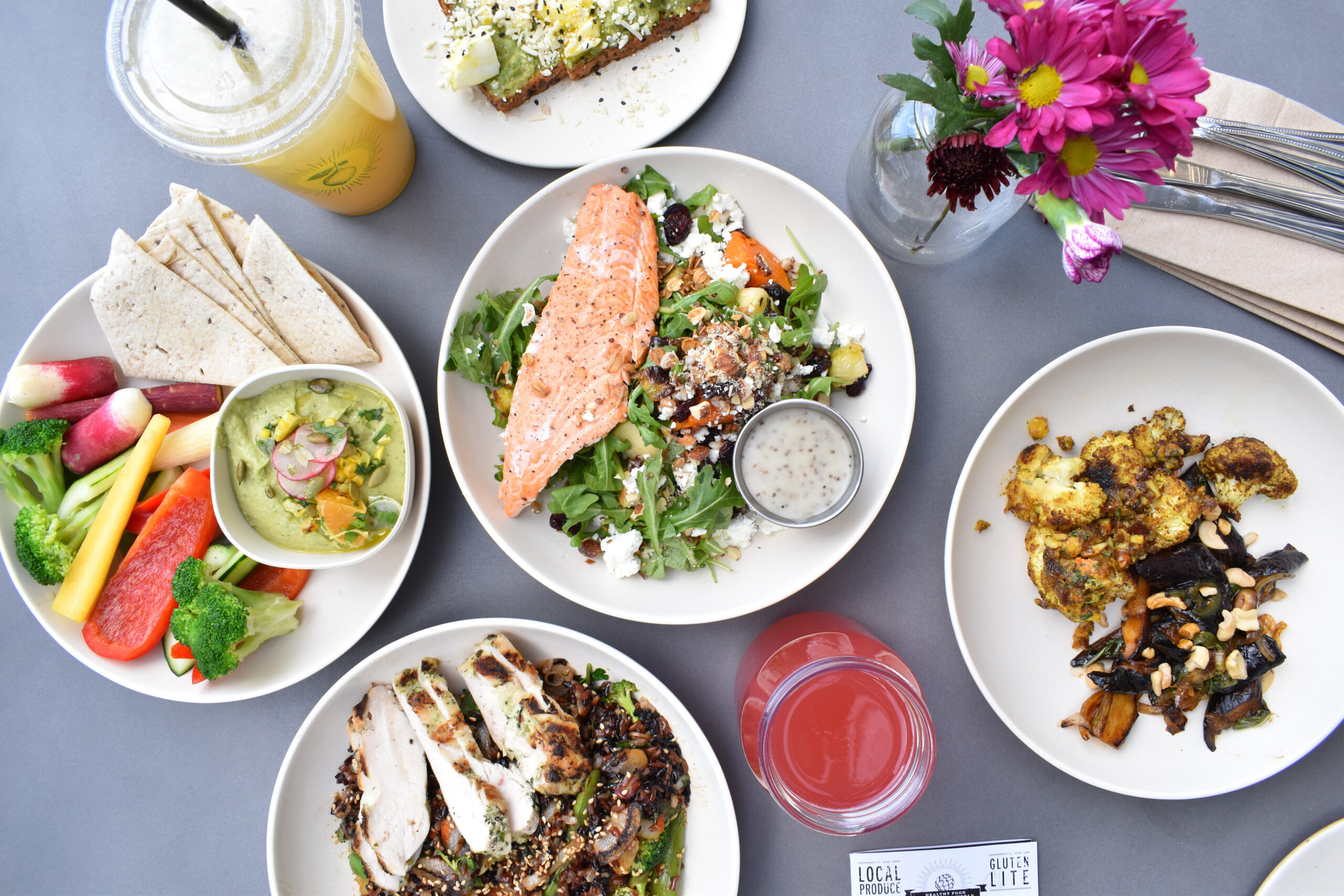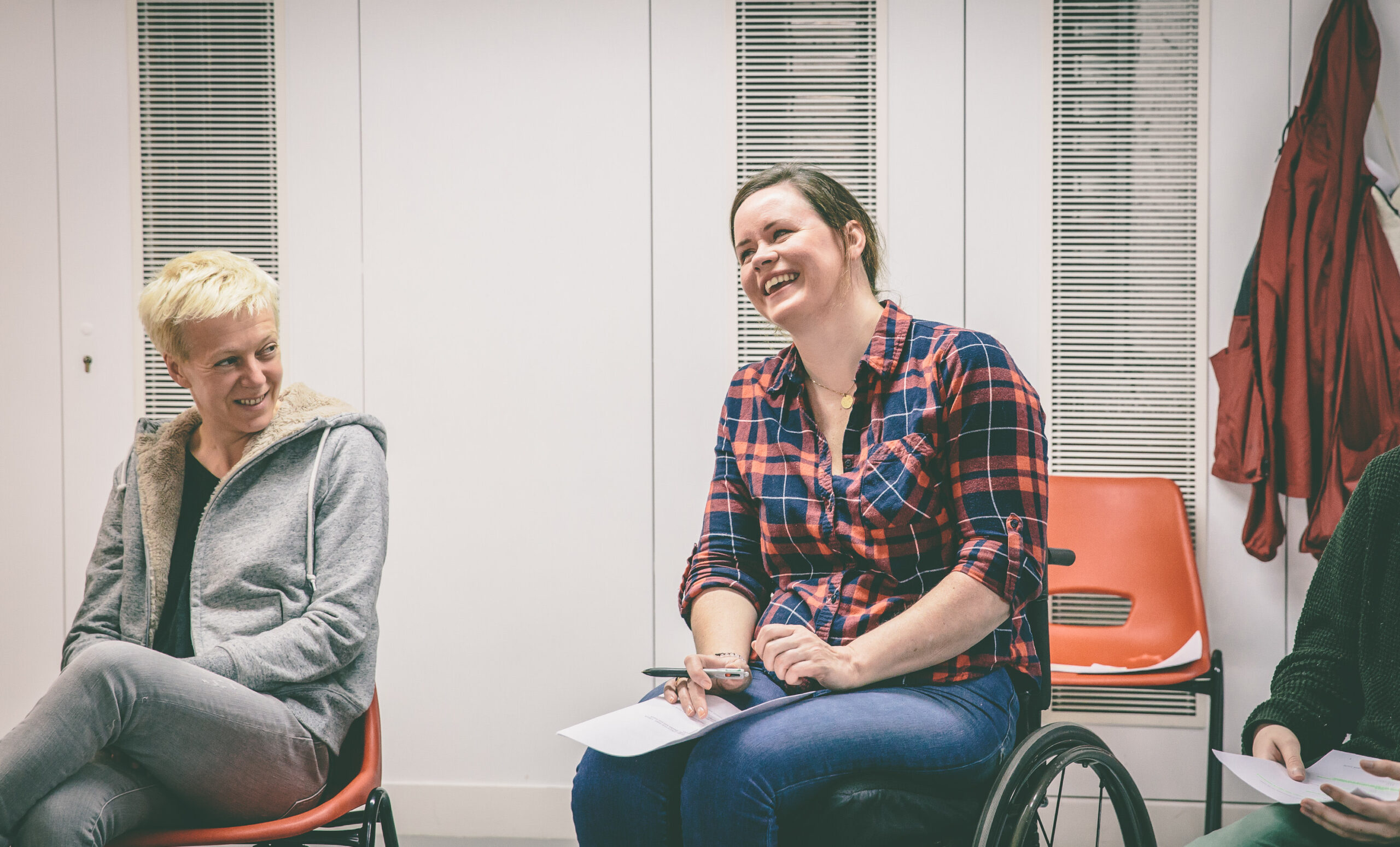What you should eat to boost your energy, stamina and recovery when acting and how to add variety to your diet
Performers, we are artistic athletes. This means that we often have the same energy requirements as many athletes in professional sports but are in the unique position of having to balance those requirements with our artistry.
Unfortunately, our industry tends to focus all its training, energy and resources on nurturing our artistic expression – while neglecting the physical demands put on us as performers. This sets us up for failure when we eventually book our dream roles.
The truth is, it doesn’t matter how talented you are if you don’t know how to sustain it.
When it comes to fuelling your body as an artistic athlete, what you put in is what you will get out. So, how can you start to fuel up more like an athlete and set yourself up for success?
Plan For Three Meals and Two Snacks Each Day
Many of the performers I work with are shocked to learn they’re not eating enough calories to meet the intense energy demands required of them. This is usually down to one of these four reasons:
- Performers tend to underestimate their energy demands and may not realise how much they need to eat to sustain their energy.
- Performers often have to deal with conforming to outdated ideals of what their bodies should look like which can lead to calorie restriction, eating disorders, or disordered eating.
- Performers are busy and simply forget to eat – or feel like they don’t have time to prepare meals.
- Intense physical activity can blunt hunger signals which can cause performers to feel like they’re not hungry until they are in the middle of a performance.
The solution to this is to eat a meal or snack every two to four hours and to plan three full meals and two snacks for each day. This way, you can be sure that you’re meeting the energy demands required of your workload.
Add Variety to Your Meals
Adding more variety to your meals is a great place to start when it comes to preventing fatigue and injury. A well-balanced eating pattern for performers includes:
- Protein (fish, meat, eggs, nuts, beans, dairy, soy) – to support muscle growth, repair and the immune system.
- Non-starchy vegetables (carrots, cruciferous vegetables, leafy greens) – to reduce inflammation and aid in recovery.
- Starchy vegetables and grains (rice, pastas, breads, oats, quinoa, potatoes, corn) – to provide carbohydrates for energy.
- Fruits (apples, berries, oranges, bananas) – to also provide carbohydrates for energy.
- Fats (nuts, butter, oils, seeds, avocados) – to promote recovery and potentially help reduce inflammation.
Here are some meal ideas for a typical day:
- Breakfast: A smoked salmon and cream cheese sandwich with your bread of choice, fruit on the side and milk, or warm porridge with almond milk, chia seeds, a sliced banana and peanut butter.
- Morning snack: Overnight oats with yoghurt, milk, berries and your nut butter of choice.
- Lunch: Grilled chicken with potatoes and vegetables, or black bean tacos with vegetables and sweet potatoes.
- Afternoon snack: Diced fruit or a protein shake.
- Dinner: Spaghetti and turkey meatballs with vegetables on the side, or bean tacos with vegetables and fruit on the side.
When is it Best for Actors to Eat?
One of the questions I hear most from the performers I work with is, “How do I eat enough so that I have energy for my performance without feeling bloated?”
This is where meal timing comes in. This will look slightly different for everyone depending on their digestive system, but here are a few tips to get you started:
- Eat a full meal three to four hours before performing/rehearsing. Meals can include fibre-rich carbohydrates, a good amount of protein and a moderate amount of fat. Some of my favourite suggestions are overnight oats with berries and yoghurt, turkey wraps with avocado and baked chips and baked salmon with sweet potato and kale.
- Eat a pre-performance snack one to two hours before performing/rehearsing for an energy boost. Include carbohydrates that are easy to break down and offer a little protein. My favourite snacks are diced fruit with yoghurt, granola bars, bread with nut butter and a drizzle of honey and crackers with cottage cheese.
- Eat a snack and hydrate during breaks. This helps maintain energy during long rehearsals and performances. Some of my favourite ideas are diced fruit or fruit pouches, granola bars, energy chews, or coconut water.
- Eat recovery meals and snacks after your performance or rehearsal. This helps replenish energy stores, repair muscle and prepare your body for the next day of performance. My favourite suggestions include protein shakes, a burger with avocado and a side salad and fruit, grilled chicken or cheese quesadilla with a salad and a cup of milk and tofu and bean tacos with veggies and a milk alternative.
How to Keep Hydrated
Proper hydration enhances mental and physical performance – while also delaying fatigue. Keeping hydrated decreases your risk of injury and helps keep joints lubricated, whereas dehydration makes joints more susceptible to injuries. Simply put, when you meet your hydration demands, you will be able to perform better and for longer.
Here are four tips to ensure you stay hydrated:
- Aim for eight to 12 cups of fluids to stay well-hydrated each day.
- Leading up to performances, drink at least two or three cups of water and/or an electrolyte-enhanced beverage two to three hours before.
- During performances, hydrate during breaks with at least one cup (or four to eight sips) every 20 minutes.
- Monitor hydration by your urine colour. It should be the colour of lemonade, not apple juice.
When it comes to fuelling your body, remember that it’s about progress and not perfection. Set small goals for yourself each week that help you move forward in a way that is manageable and practical for you.
For example, can you commit to adding more vegetables to your plate this week?
And remember: nutrition should also be fun, so please make sure to incorporate the foods that you love, as well as being open to experimenting with foods you haven’t tried before.
Take a look at our News & Advice section for more wellbeing advice, including how to prepare healthy food as a busy actor.
 Crystal Nicholls started her career as a performer, working across stage and screen for over 10 years. She spent six years at the Lyceum Theatre in the West End production of The Lion King as an ensemble dancer and Sarabi cover. Crystal is now a certified nutrition and holistic health coach, who helps West End performers thrive on and off stage, so they can get back to loving what they do. She’s also currently working with the dancers in Matthew Bourne’s New Adventures, with students at The Dang, and is a member of Applause For Thought, where she delivers regular mental health and wellbeing sessions to support various West End productions.
Crystal Nicholls started her career as a performer, working across stage and screen for over 10 years. She spent six years at the Lyceum Theatre in the West End production of The Lion King as an ensemble dancer and Sarabi cover. Crystal is now a certified nutrition and holistic health coach, who helps West End performers thrive on and off stage, so they can get back to loving what they do. She’s also currently working with the dancers in Matthew Bourne’s New Adventures, with students at The Dang, and is a member of Applause For Thought, where she delivers regular mental health and wellbeing sessions to support various West End productions.
Headshot credit: Mark McGee












